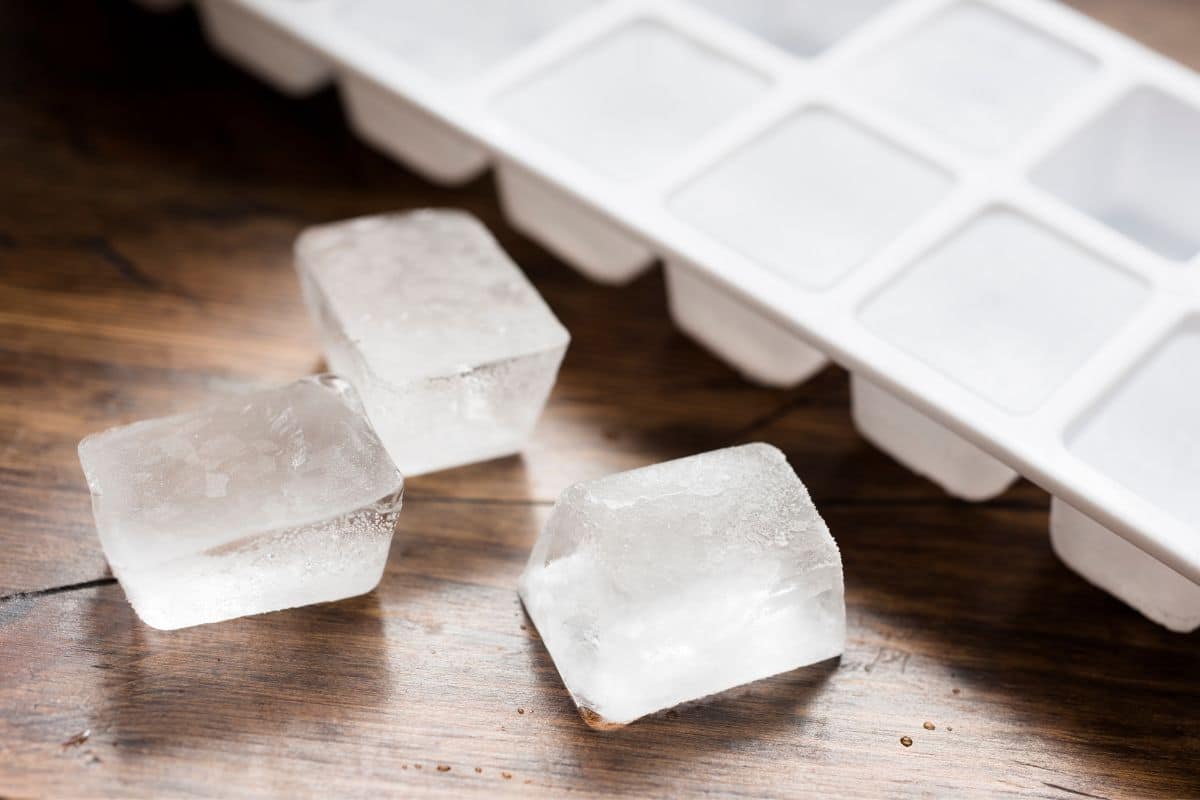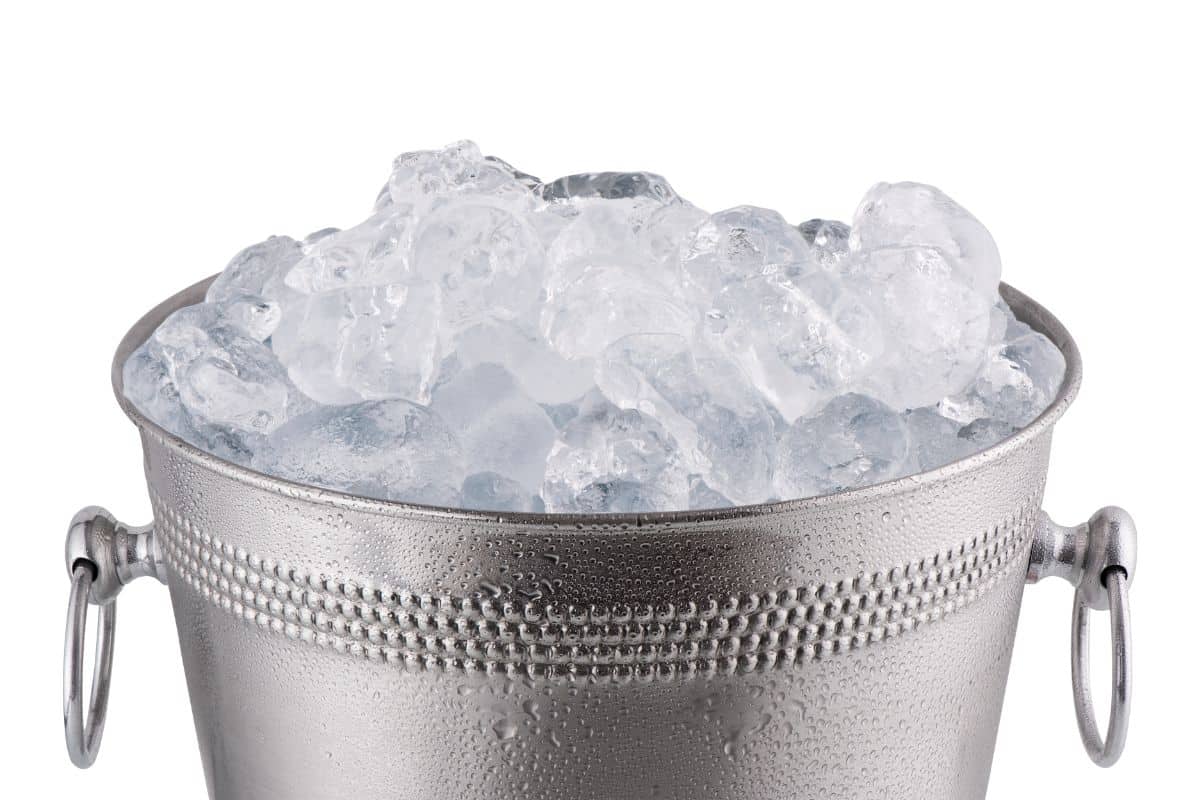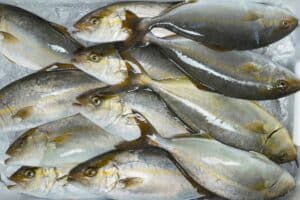Water comes in various forms, including liquid, gas, and solid. But it’s the solid state that we will be discussing in today’s article.
I’ve been guilty of forgetting to make ice cubes on a hot day and wondering how fast I can make those little guys freeze.
But how long does it take for water to freeze? It takes anywhere between 3-5 hours in most cases, so you need to allow a bit of time before you can cool down your drink.

I’ll talk more about freezing water below – looking at different freezing times and methods.
How Long Does It Take For Water To Freeze In The Freezer?
If you want to freeze water in a hurry, the freezer is obviously the best option.
The majority of freezers are set at or below 32 degrees Fahrenheit (zero degrees Celsius).
In these conditions, water will typically freeze in about one to two hours.
Ice tends to start forming within around one hour when water is stored in ice cube trays inside a freezer.
But, for the water to completely freeze and become solid ice cubes, the time frame is usually closer to four hours or so.
Many factors determine the length of time it takes for ice to form.
For instance, the water temperature inside the trays can affect the freezing process. Very hot or very cold water tends to freeze much faster than lukewarm water.
This is down to the Mpemba effect, which suggests warmer water can freeze faster than cooler water under certain conditions. However, why this occurs is still up for debate.
Another factor is the amount of water present.
The more water there is, the longer it will take to freeze. Therefore, oversized ice cube trays will usually take more than one or two hours to form ice.
So, if you’re in a hurry, add some hot or cold water to a small ice cube tray, and you should have ice cubes within a few hours.
How Long Does It Take For A Bottle Of Water To Freeze?
Looking to freeze water in a bottle rather than ice trays? If so, you’ll be looking at around four to five hours for the water to freeze completely inside the bottle.
The size of the bottle can determine this timespan, but a standard-sized bottle should fully freeze within five hours.
If you want an iced bottle of water for a hot day, I’d recommend putting it in the freezer the night before.
How Do You Freeze Water Quickly?
There are numerous ways to speed up the freezing process of water.
If you have some unexpected guests arriving for drinks and nibbles, it’s always a good idea to have some ice ready for refreshing beverages.
One way to speed up the freezing process is to store the water in a metal container.
Metal conducts heat much better than plastic and moves heat away from the water faster than plastic.
Store this in your freezer, and you should be able to cut the freezing time down somewhat.
Another option is to adjust your freezer’s temperature. Although we’re stating the obvious here, the colder the temperature, the faster the water will freeze.
So, turn your freezer down lower than usual and wait for it to reach a low temperature. Then, you can place your ice trays or containers inside.
Allow the ice to form, and try not to open the freezer door too often, as this can slow down the entire process.
As we mentioned earlier, hot water tends to freeze quicker than lukewarm water.
Therefore, try boiling water before putting it in the freezer trays; this should give you ice within a few hours.
Finally, we recommend using distilled or bottled water rather than tap water.
Tap water contains contaminants that can impact the crystallization of water molecules, slowing down the freezing process.
Mix and match some of these tips, and you’ll have ice ready for your guests in no time!

Volumes Of Water – Freezing Times
We now know that larger volumes of water tend to take longer to freeze than smaller amounts.
This is simply down to the fact that it takes longer for heat to escape a larger body of water than a smaller one. On top of this, the colder the temperature, the faster the water will freeze.
Here are some estimates for how long it takes specific volumes of water to freeze:
- One cup (237 ml) of water – 30 to 60 minutes
- One pint (473 ml) of water – One to two hours
- One quart (946 ml) of water – Two to Four hours
- One gallon (3,785 ml) of water – Eight to 16 hours
You can get a more precise estimate of how long it takes for water to freeze by using an online calculator, such as this.
You’ll have a much better understanding of how long you have to wait for your ice to freeze with this calculator, so you can plan ahead for certain events with confidence.
Can Salt Or Other Substances Affect How Long It Takes For Water To Freeze?
Yes, adding salt or other substances to water can affect how long it takes to freeze.
Salt lowers the freezing point of water, which means that it will take longer for the water to reach the freezing point.
Other substances can also affect the freezing point of water, depending on their chemical properties.
For instance, sugar can affect the water-freezing process. When added to water, sugar lowers the freezing point of the water, like salt.
Therefore, the water will need to be cooled to a lower temperature in order to freeze.
Overall, the amount of salt, sugar, or other substances added will determine how much the freezing point is lowered.
Does The Shape And Size Of A Container Affect Water’s Freezing Process?
The shape and size of the container can indeed affect how long it takes water to freeze.
A container with a larger surface area will freeze faster than one with a smaller surface area. This is because more of the water is exposed to the air and can lose heat more quickly.
On the other hand, a container with a larger volume of water will take longer to freeze than a container with a smaller volume of water.
In Summary
The overall volume of water and surrounding conditions affect how long it takes to freeze.
In freezers, you can expect ice in trays to freeze within four to five hours fully.
So, get freezing in plenty of time before your party starts!
FAQs
It typically takes about 1-2 hours for water to freeze at 32°F (0°C), depending on the container size and freezer efficiency.
Water in an ice tray usually freezes in about 3-4 hours in a standard home freezer.
One cup of water can freeze in approximately 2-3 hours in a typical home freezer.
It is unlikely for water to fully freeze into ice in 30 minutes under normal freezing conditions.






